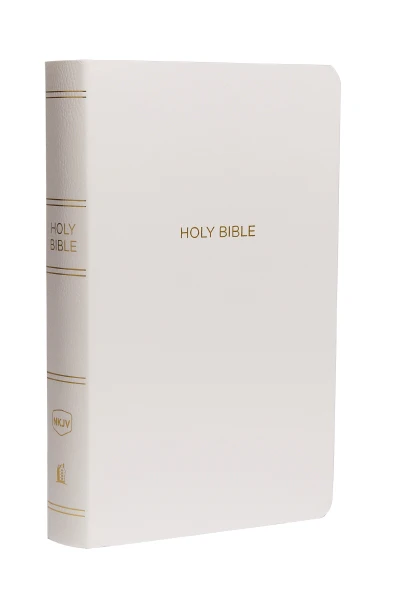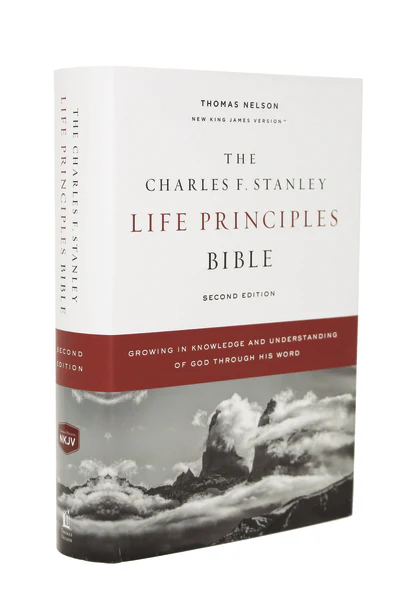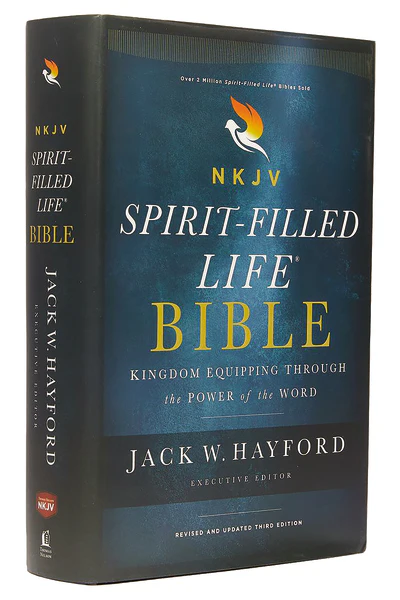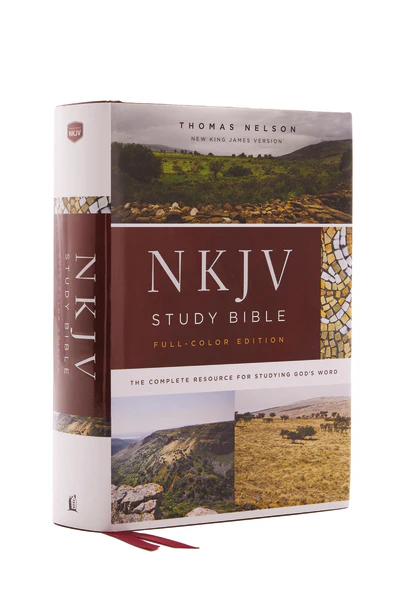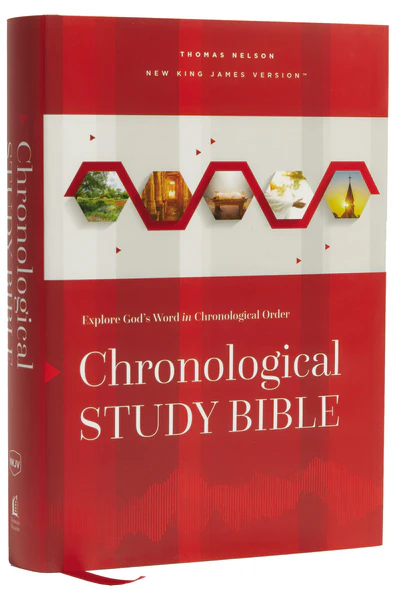Deuteronomy 23:1-8
New King James Version
Those Excluded from the Congregation
23 “He who is emasculated by crushing or mutilation shall (A)not enter the assembly of the Lord.
2 “One of illegitimate birth shall not enter the assembly of the Lord; even to the tenth generation none of his descendants shall enter the assembly of the Lord.
3 (B)“An Ammonite or Moabite shall not enter the assembly of the Lord; even to the tenth generation none of his descendants shall enter the assembly of the Lord forever, 4 (C)because they did not meet you with bread and water on the road when you came out of Egypt, and (D)because they hired against you Balaam the son of Beor from Pethor of [a]Mesopotamia, to curse you. 5 Nevertheless the Lord your God would not listen to Balaam, but the Lord your God turned the curse into a blessing for you, because the Lord your God (E)loves you. 6 (F)You shall not seek their peace nor their prosperity all your days forever.
7 “You shall not abhor an Edomite, (G)for he is your brother. You shall not abhor an Egyptian, because (H)you were an alien in his land. 8 The children of the third generation born to them may enter the assembly of the Lord.
Read full chapterFootnotes
- Deuteronomy 23:4 Heb. Aram Naharaim
Numbers 6:1-21
New King James Version
The Law of the Nazirite
6 Then the Lord spoke to Moses, saying, 2 “Speak to the children of Israel, and say to them: ‘When either a man or woman [a]consecrates an offering to take the vow of a Nazirite, (A)to separate himself to the Lord, 3 (B)he shall separate himself from wine and similar drink; he shall drink neither vinegar made from wine nor vinegar made from similar drink; neither shall he drink any grape juice, nor eat fresh grapes or raisins. 4 All the days of his [b]separation he shall eat nothing that is produced by the grapevine, from seed to skin.
5 ‘All the days of the vow of his separation no (C)razor shall come upon his head; until the days are fulfilled for which he separated himself to the Lord, he shall be holy. Then he shall let the locks of the hair of his head grow. 6 All the days that he separates himself to the Lord (D)he shall not go near a dead body. 7 (E)He shall not [c]make himself unclean even for his father or his mother, for his brother or his sister, when they die, because his separation to God is on his head. 8 (F)All the days of his separation he shall be holy to the Lord.
9 ‘And if anyone dies very suddenly beside him, and he defiles his consecrated head, then he shall (G)shave his head on the day of his cleansing; on the seventh day he shall shave it. 10 Then (H)on the eighth day he shall bring two turtledoves or two young pigeons to the priest, to the door of the tabernacle of meeting; 11 and the priest shall offer one as a sin offering and the other as a burnt offering, and make atonement for him, because he sinned in regard to the corpse; and he shall sanctify his head that same day. 12 He shall consecrate to the Lord the days of his separation, and bring a male lamb in its first year (I)as a trespass offering; but the former days shall be [d]lost, because his separation was defiled.
13 ‘Now this is the law of the Nazirite: (J)When the days of his separation are fulfilled, he shall be brought to the door of the tabernacle of meeting. 14 And he shall present his offering to the Lord: one male lamb in its first year without blemish as a burnt offering, one ewe lamb in its first year without blemish (K)as a sin offering, one ram without blemish (L)as a peace offering, 15 a basket of unleavened bread, (M)cakes of fine flour mixed with oil, unleavened wafers (N)anointed with oil, and their grain offering with their (O)drink offerings.
16 ‘Then the priest shall bring them before the Lord and offer his sin offering and his burnt offering; 17 and he shall offer the ram as a sacrifice of a peace offering to the Lord, with the basket of unleavened bread; the priest shall also offer its grain offering and its drink offering. 18 (P)Then the Nazirite shall shave his consecrated head at the door of the tabernacle of meeting, and shall take the hair from his consecrated head and put it on the fire which is under the sacrifice of the peace offering.
19 ‘And the priest shall take the (Q)boiled shoulder of the ram, one (R)unleavened cake from the basket, and one unleavened wafer, and (S)put them upon the hands of the Nazirite after he has shaved his consecrated hair, 20 and the priest shall wave them as a wave offering before the Lord; (T)they are holy for the priest, together with the breast of the wave offering and the thigh of the heave offering. After that the Nazirite may drink wine.’
21 “This is the law of the Nazirite who vows to the Lord the offering for his separation, and besides that, whatever else his hand is able to provide; according to the vow which he takes, so he must do according to the law of his separation.”
Read full chapterFootnotes
- Numbers 6:2 Or makes a difficult vow
- Numbers 6:4 Separation as a Nazirite
- Numbers 6:7 By touching a dead body
- Numbers 6:12 void
Leviticus 27
New King James Version
Redeeming Persons and Property Dedicated to God
27 Now the Lord spoke to Moses, saying, 2 “Speak to the children of Israel, and say to them: (A)‘When a man [a]consecrates by a vow certain persons to the Lord, according to your [b]valuation, 3 if your valuation is of a male from twenty years old up to sixty years old, then your valuation shall be fifty shekels of silver, (B)according to the shekel of the sanctuary. 4 If it is a female, then your valuation shall be thirty shekels; 5 and if from five years old up to twenty years old, then your valuation for a male shall be twenty shekels, and for a female ten shekels; 6 and if from a month old up to five years old, then your valuation for a male shall be five shekels of silver, and for a female your valuation shall be three shekels of silver; 7 and if from sixty years old and above, if it is a male, then your valuation shall be fifteen shekels, and for a female ten shekels.
8 ‘But if he is too poor to pay your valuation, then he shall present himself before the priest, and the priest shall set a value for (C)him; according to the ability of him who vowed, the priest shall value him.
9 ‘If it is an animal that men may bring as an offering to the Lord, all that anyone gives to the Lord shall be holy. 10 He shall not substitute it or exchange it, good for bad or bad for good; and if he at all exchanges animal for animal, then both it and the one exchanged for it shall be (D)holy. 11 If it is an unclean animal which they do not offer as a sacrifice to the Lord, then he shall present the animal before the priest; 12 and the priest shall set a value for it, whether it is good or bad; as you, the priest, value it, so it shall be. 13 (E)But if he wants at all to redeem it, then he must add one-fifth to your valuation.
14 ‘And when a man [c]dedicates his house to be holy to the Lord, then the priest shall set a value for it, whether it is good or bad; as the priest values it, so it shall stand. 15 If he who dedicated it wants to [d]redeem his house, then he must add one-fifth of the money of your valuation to it, and it shall be his.
16 ‘If a man [e]dedicates to the Lord part of a field of his possession, then your valuation shall be according to the seed for it. A homer of barley seed shall be valued at fifty shekels of silver. 17 If he dedicates his field from the Year of Jubilee, according to your valuation it shall stand. 18 But if he dedicates his field after the Jubilee, then the priest shall (F)reckon to him the money due according to the years that remain till the Year of Jubilee, and it shall be deducted from your valuation. 19 And if he who dedicates the field ever wishes to redeem it, then he must add one-fifth of the money of your valuation to it, and it shall belong to him. 20 But if he does not want to redeem the field, or if he has sold the field to another man, it shall not be redeemed anymore; 21 but the field, (G)when it is released in the Jubilee, shall be holy to the Lord, as a (H)devoted field; it shall be (I)the possession of the priest.
22 ‘And if a man dedicates to the Lord a field which he has bought, which is not the field of (J)his possession, 23 then the priest shall reckon to him the worth of your valuation, up to the Year of Jubilee, and he shall give your valuation on that day as a holy offering to the Lord. 24 (K)In the Year of Jubilee the field shall return to him from whom it was bought, to the one who owned the land as a possession. 25 And all your valuations shall be according to the shekel of the sanctuary: (L)twenty gerahs to the shekel.
26 ‘But the (M)firstborn of the animals, which should be the Lord’s firstborn, no man shall dedicate; whether it is an ox or sheep, it is the Lord’s. 27 And if it is an unclean animal, then he shall redeem it according to your valuation, and (N)shall add one-fifth to it; or if it is not redeemed, then it shall be sold according to your valuation.
28 (O)‘Nevertheless no [f]devoted offering that a man may devote to the Lord of all that he has, both man and beast, or the field of his possession, shall be sold or redeemed; every devoted offering is most holy to the Lord. 29 (P)No person under the ban, who may become doomed to destruction among men, shall be redeemed, but shall surely be put to death. 30 And (Q)all the tithe of the land, whether of the seed of the land or of the fruit of the tree, is the Lord’s. It is holy to the Lord. 31 (R)If a man wants at all to redeem any of his tithes, he shall add one-fifth to it. 32 And concerning the tithe of the herd or the flock, of whatever (S)passes under the rod, the tenth one shall be holy to the Lord. 33 He shall not inquire whether it is good or bad, (T)nor shall he exchange it; and if he exchanges it at all, then both it and the one exchanged for it shall be holy; it shall not be redeemed.’ ”
34 (U)These are the commandments which the Lord commanded Moses for the children of Israel on Mount (V)Sinai.
Read full chapterFootnotes
- Leviticus 27:2 Or makes a difficult or extraordinary vow
- Leviticus 27:2 appraisal
- Leviticus 27:14 sets apart
- Leviticus 27:15 buy back
- Leviticus 27:16 sets apart
- Leviticus 27:28 Given exclusively and irrevocably
Deuteronomy 23:21-23
New King James Version
21 (A)“When you make a vow to the Lord your God, you shall not delay to pay it; for the Lord your God will surely require it of you, and it would be sin to you. 22 But if you abstain from vowing, it shall not be sin to you. 23 (B)That which has gone from your lips you shall keep and perform, for you voluntarily vowed to the Lord your God what you have promised with your mouth.
Read full chapter
Leviticus 19:1-2
New King James Version
Moral and Ceremonial Laws
19 And the Lord spoke to Moses, saying, 2 “Speak to all the congregation of the children of Israel, and say to them: (A)‘You shall be holy, for I the Lord your God am holy.
Read full chapter
Deuteronomy 22:9-11
New King James Version
9 (A)“You shall not sow your vineyard with different kinds of seed, lest the yield of the seed which you have sown and the fruit of your vineyard be defiled.
10 (B)“You shall not plow with an ox and a donkey together.
11 (C)“You shall not wear a garment of different sorts, such as wool and linen mixed together.
Read full chapter
Leviticus 19:19
New King James Version
19 ‘You shall keep My statutes. You shall not let your livestock breed with another kind. You shall not sow your field with mixed seed. Nor shall a garment of mixed linen and wool come upon you.
Read full chapterScripture taken from the New King James Version®. Copyright © 1982 by Thomas Nelson. Used by permission. All rights reserved.
Bible Gateway Recommends
